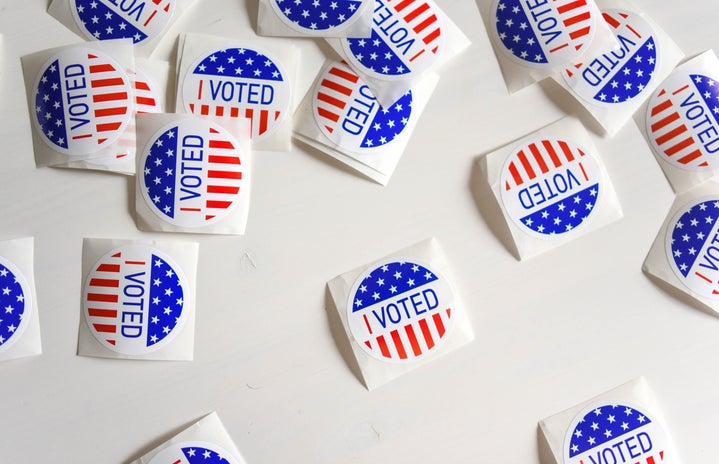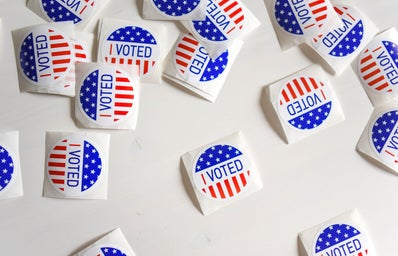by Emily Murphy
Political parties always seem to be a topic of interest in America, but they have become more intertwined in our lives in recent years. There’s now the concept of
“woke culture,” an intense new voice meant to identify injustice in society, and there seems to be a pattern of tying political parties to catastrophic events. For instance, the Black Lives Matter movement was revamped after its creation in 2013 due to the death of George Floyd, and even the COVID-19 virus vaccine was politicized. Our political climate has shifted dramatically since 2020, playing a bigger part in our everyday lives. As I grew up, I couldn’t help but to form opinions about the world around me and I felt a responsibility to do so, as most of us do. However, what we’re taught growing up may not end up aligning with our beliefs or morals when we’re older.
Growing up in a small town in Southern Maryland, most of the people and town politicians in my life were Republican. Most town politicians that were elected were Republican because most registered voters were Republican. With the majority of the population also being Christian, I never felt I had an option to choose differently for myself. My family and I followed these trends, being conservative Christians. We attended church every Sunday, listening to God’s word, following it to the best of our abilities to carry our religion into our political beliefs.
I loved this part of my identity and it made a lot of sense to me until one day, it didn’t anymore. I was sitting in church in the middle of the pandemic when suddenly the priest asserted that ‘fake Catholics’ were a threat to our religion. He continued that if we supported abortion or LGBTQIA+ marriage, that we had no right to be here in this church. It was at that moment that I got up and left. For the first time I questioned if I really should have been in that church. I have been a feminist since I can remember, but the priest’s proclamation prompted me to do further research about what I believed in. The hard truth was, I believed in women’s reproductive health because if I were pregnant, I would want a choice. Being a bisexual woman, I also believed in the right to gay marriage. How could love be so harmful? This wasn’t benefiting me anymore, and as much as I wanted to keep pretending it was. It was time I started supporting a political party that supported me. This process was scary, draining and confusing. I kept my relationship with God and my Republican friends that accepted these opinions but I left that party and the church because I no longer wanted to hold onto labels that weren’t empowering me.
Likewise, a friend that I interviewed was registered Democrat all throughout college, then realized later in life that this party did not align with his views. He first began questioning his registration as a Democrat when he received his first paycheck. He hated how much was coming out of his checks and knew that Democrats generally support higher taxes. Later in his life, he converted to Catholicism for his wife. This was what led him to become a member of the Republican Party. He wanted to support and elect people that considered following God’s word as importantly as he considered it to be. Like mine and like most people, his spiritual journey was intertwined with his political journey. Once he knew that Catholicism was a core part of the way he lived his life, he wanted to be a part of the political party that reinforced Christian values. Being Republican better reflected his morals, beliefs, values and still does today.
My parents come from the same perspective as my friend I interviewed, and you may see why it might be hard for us to have productive conversations regarding politics. Coming home from college for the summer I had loud, angry opinions and they had generational beliefs they stood on. Nonetheless, we made it work by practicing patience and openness. I’ve learned a lot from my parents, and they’ve learned a lot from me. There is reasoning behind the generalizations associated with both parties that we don’t always think about. Switching political parties is a complex process, but having respect for others’ opinions while you discover your own goes a long way.


